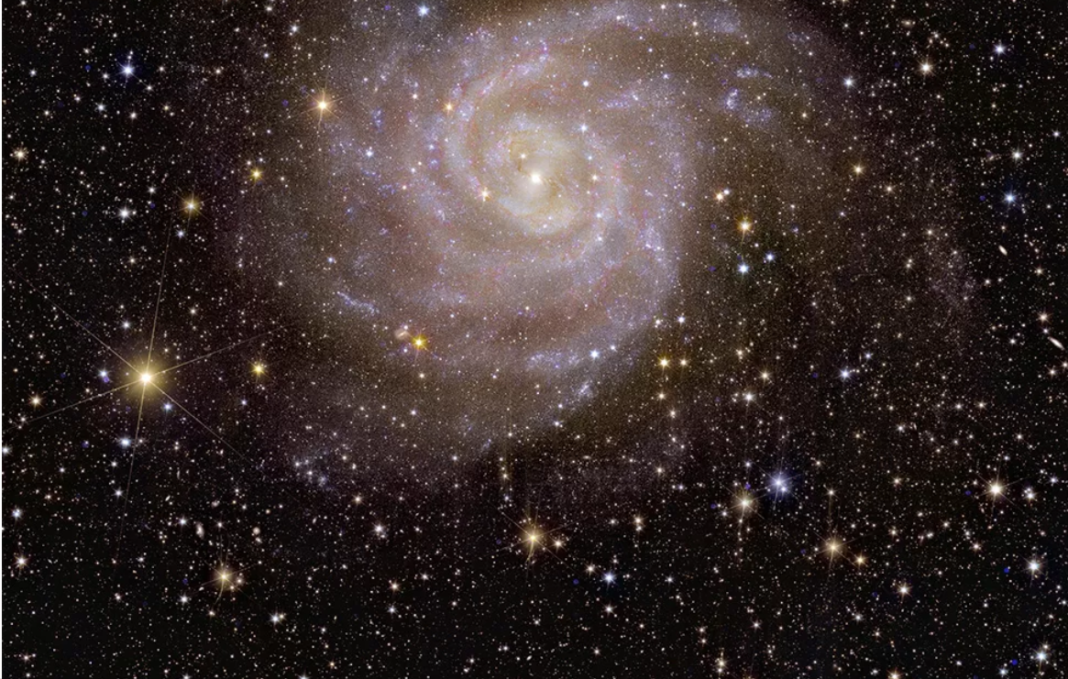(BBC News) Europe’s Euclid telescope is ready to begin its mission to help us understand the greatest mysteries in the Universe.
Exquisite imagery from the space observatory shows its capabilities to be exceptional.
Over the next six years, Euclid will survey a third of the heavens to get some clues about the nature of so-called dark matter and dark energy.
These unknown “influencers” appear to control the shape and expansion of everything that is out there.
Researchers concede, however, they know virtually nothing about them, even though they probably account for 95% of the content of the cosmos.
Neither dark matter nor dark energy is directly detectable. Our only hope of gaining some understanding is to trace their subtle signals in the things we can see.
This will be Euclid’s job: to observe the contours, distances and motions of billions of galaxies, the light of which has taken almost the entire age of the Universe to reach us.
Somewhere in the statistics of this 3D cosmic map – the largest ever made – scientists expect to find answers.
Euclid’s survey will be the most fundamental of inquiries, argued professor Carole Mundell, the director of science at the European Space Agency (ESA).
“We are human, we want to understand everything around us; whether that was as ancient people looking at the night sky and drawing constellations on our caves, or trying to understand whether the Sun would come back after the winter – we seek that knowledge and insight,” she told BBC News.
“We don’t currently understand 95% of the Universe, a universe that is 13.8 billion years old. We’re sentient beings who have been around for a tiny fraction of that time, but we could be the species that gets to figure it all out.”
Dark matter and dark energy are among the biggest puzzles in modern astrophysics.
The former could be some as-yet-undetected particle. Astronomers infer its presence from the gravitational pull it exerts on the matter we can see. Galaxies would fly apart if it wasn’t there.
The latter represents a very different problem. It could be some kind energy in the vacuum of space. Whatever it is, it appears to be working against gravity to push galaxies apart at an ever-accelerating rate.
The US$1.5-billion Euclid telescope went into space in July. Since then, engineers have been fine-tuning it.
There were some early worries. Initially, Euclid’s optics could not lock onto stars to take a steady image. This required new software for the telescope’s guidance sensor.
Engineers also found some stray light was polluting pictures when the observatory was pointed in a certain way. But with these issues resolved, Euclid is good to go – as evidenced by the release of five sample images on Tuesday.
“They are fantastic,” said professor Isobel Hook, who worked on one of the teams in the 1990s that first discovered the Universe was expanding at a steadily increasing pace.
“I finally saw the images at full resolution on Monday, and they really blew me away. We were expecting Euclid to perform very well, and it really has met all our expectations. It’s a big relief and really wonderful to see,” the Lancaster University astronomer said.
No space telescope has been able to combine the breadth, depth and sharpness of vision that Euclid can.
The James Webb telescope, for example, has much higher resolution, but it cannot cover the amount of sky that Euclid does in one shot.
“This giant camera with hundreds of millions of pixels is now ready to go and survey the distant Universe and objects over a vast range of the sky – a vast volume of the sky in space and in time,” said professor Mark McCaughrean.
“It is only by looking at huge numbers of galaxies that we will be able to tease out those subtle signals for dark energy and dark matter, which is what Euclid is all about,” the ESA’s senior scientific adviser said.


